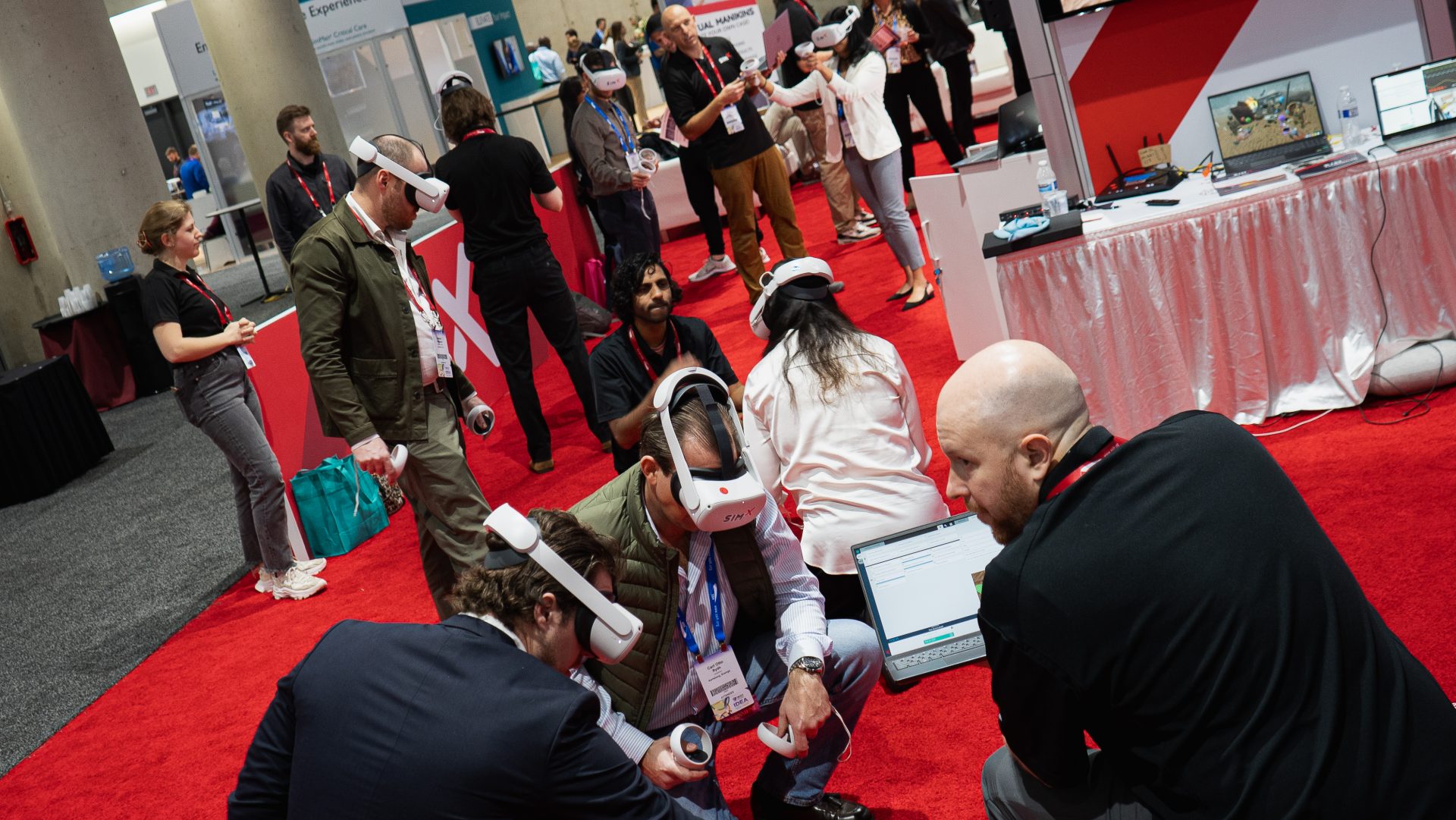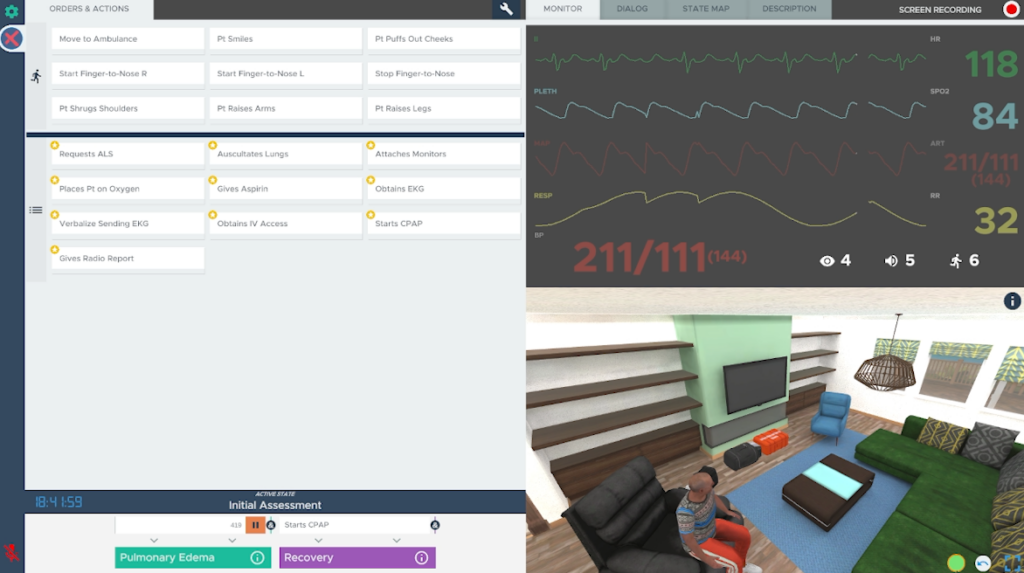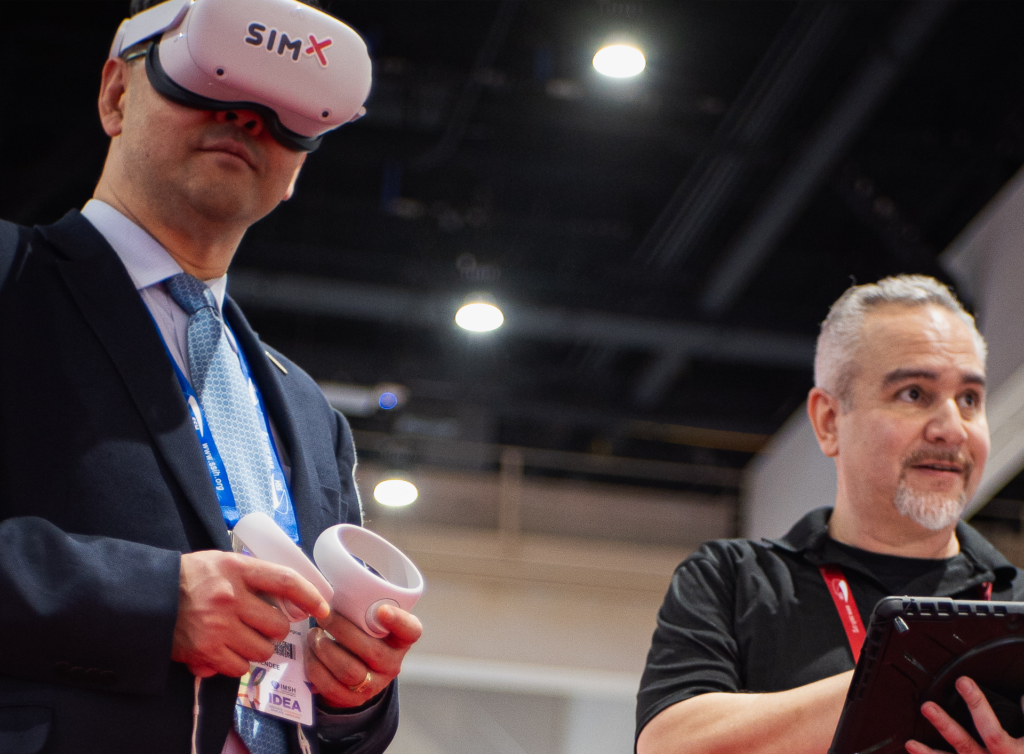SimX is completely changing the way healthcare providers undergo simulation training. For decades, patient manikins have evolved to incorporate varying...
The Moderator Advantage: 5 Reasons Why SimX VR Uses Facilitated Learning

Why does SimX require a moderator to run our virtual patient encounters? This is a common question that we hear from many prospective users. Perhaps your institution lacks enough trained faculty to facilitate SimX scenarios successfully, or perhaps you want to utilize SimX simply as a supplemental learning activity, and moderation doesn’t fit into your planned curriculum. Whatever your reason for shying away from moderated Virtual Reality (VR) simulation training like SimX, we want to share five reasons why a moderator is an invaluable resource for achieving your desired learning outcomes.
What is a moderator? All SimX scenarios currently require a moderator to guide learners through every virtual patient encounter. Moderators–also often referred to as facilitators–are subject matter experts or simulation operation specialists with knowledge of the SimX program and the chosen scenarios. They can control the rate at which learners progress through the scenario and prompt patient and non-playable character (NPC) dialogue options. In the SimX Virtual Manikin Series, moderators can even control test results, diagnoses, and patient outcomes in real time.
Here are five reasons why moderators are a vital part of the VR simulation training experience.
1) Structured Learning
Moderators can create more structured learning environments where educators have the time and space necessary to fully address key learning objectives. Structured simulation training increases immersion as moderators work toward facilitating seamless virtual patient interactions that keep learners focused on the task in front of them.
2) Building Confident Learners
When learners are supported by a moderator/facilitator, they are more likely to fully engage with the scenarios. With a moderator to provide direction, they can ask questions and test new tools and procedures in a safe environment. In this way, learners can better build the essential skills they need to become confident and competent clinicians.
3) Robust Moderation Tools
The SimX moderator system is built with educators in mind! With just a single laptop and internet connection, you can facilitate learner progress, advance patient states throughout the scenario, and help teams communicate with virtual patients and NPCs in real time.

4) Student-Centered Learning
By utilizing moderated VR simulations, educators can better provide a comprehensive, student-centered learning environment focused on individualized instruction. Moderators can intervene, pivot, and refocus the training as it progresses to better reflect each learner’s background and experience.
5) Debriefing Tools
Take your moderated simulation sessions to the next level with SimX’s powerful debriefing tools. SimX automatically creates time stamps for each key action performed throughout the scenario. These time stamps can be reviewed and discussed with learners to improve performance as you run through scenarios again and again. Moderators can also record and save footage of scenario run-throughs to use in various ways outside the headset.

Studies have shown that the most effective way to improve engagement and curriculum efficacy is to practice a combination of both facilitated and student or self-led learning. There are many ways to increase learner participation and reduce faculty burden while still utilizing SimX’s moderator-centered training methods.
- Promote self-reflection by taking advantage of SimX’s recording feature. Learners can review scenarios in their own time and learn from their own and others’ simulation experiences.
- Train learners to become student moderators. If successful, this can help students become more independent and responsible and encourage better team dynamics.
- Practice more interprofessional team training. If you are still hesitant to provide an experienced moderator to run SimX scenarios, build more interprofessional teams with varied experience levels so participants can learn from and guide each other as they build essential communication skills.
Although there can be an appeal for a product that does not require a moderator, the benefits of experienced facilitation outweigh any perceived drawbacks. Moderators play a crucial role in creating a structured and supportive learning environment, ensuring that learners engage deeply with the content while achieving key educational objectives. With robust tools at their disposal, moderators enhance the educational experience by tailoring simulations to individual learner needs and facilitating effective debriefing sessions that drive continuous improvement. Embracing the moderator-centered approach of SimX not only enriches educational outcomes but also fosters a collaborative and student-centered learning environment that prepares healthcare professionals for real-world challenges.
What’s in our future? Technology is rapidly evolving, and this includes SimX technology! Our R&D and engineering teams work tirelessly to build better systems that will improve our scenarios, improve the user experience for both learners and educators and ultimately save lives. Our moderator experience will only get better and more sophisticated as we move forward while always looking for more ways to innovate and integrate new technologies.
Want to read more about the role of facilitators and moderators in essential healthcare education?
Explore these references:
Gillespie, G. L., Farra, S., Regan, S. L., & Brammer, S. V. (2021). Impact of immersive virtual reality simulations for changing knowledge, attitudes, and behaviors. Nurse Education Today, 105, 105025. https://doi.org/10.1016/j.nedt.2021.105025
“Synchronous virtual simulation can be realistic, experiential, interactive, collaborative, and learner-centered”
Persico, L., Belle, A., DiGregorio, H., Wilson-Keates, B., & Shelton, C. (2021). Healthcare Simulation Standards of Best PracticeTM Facilitation. Clinical Simulation in Nursing, 58, 22-26. https://doi.org/10.1016/j.ecns.2021.08.010
“Simulation facilitated by a competent instructor can promote participants’ satisfaction, confidence, learning of KSAs, critical thinking, clinical judgment, and future clinical behaviors”
Jeffries, P. R. (2020). Simulation in nursing education (3. edition ed.). National League for Nursing.
“The facilitator implements educational strategies such as providing appropriate guidance and feedback during the prebriefing and debriefing stages, which enhance the simulation experience”
